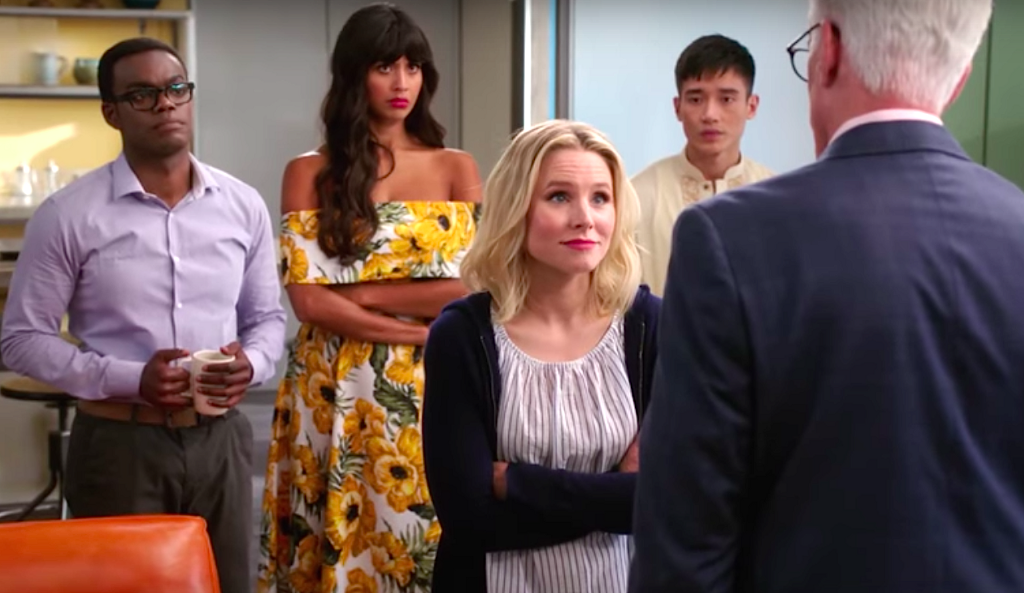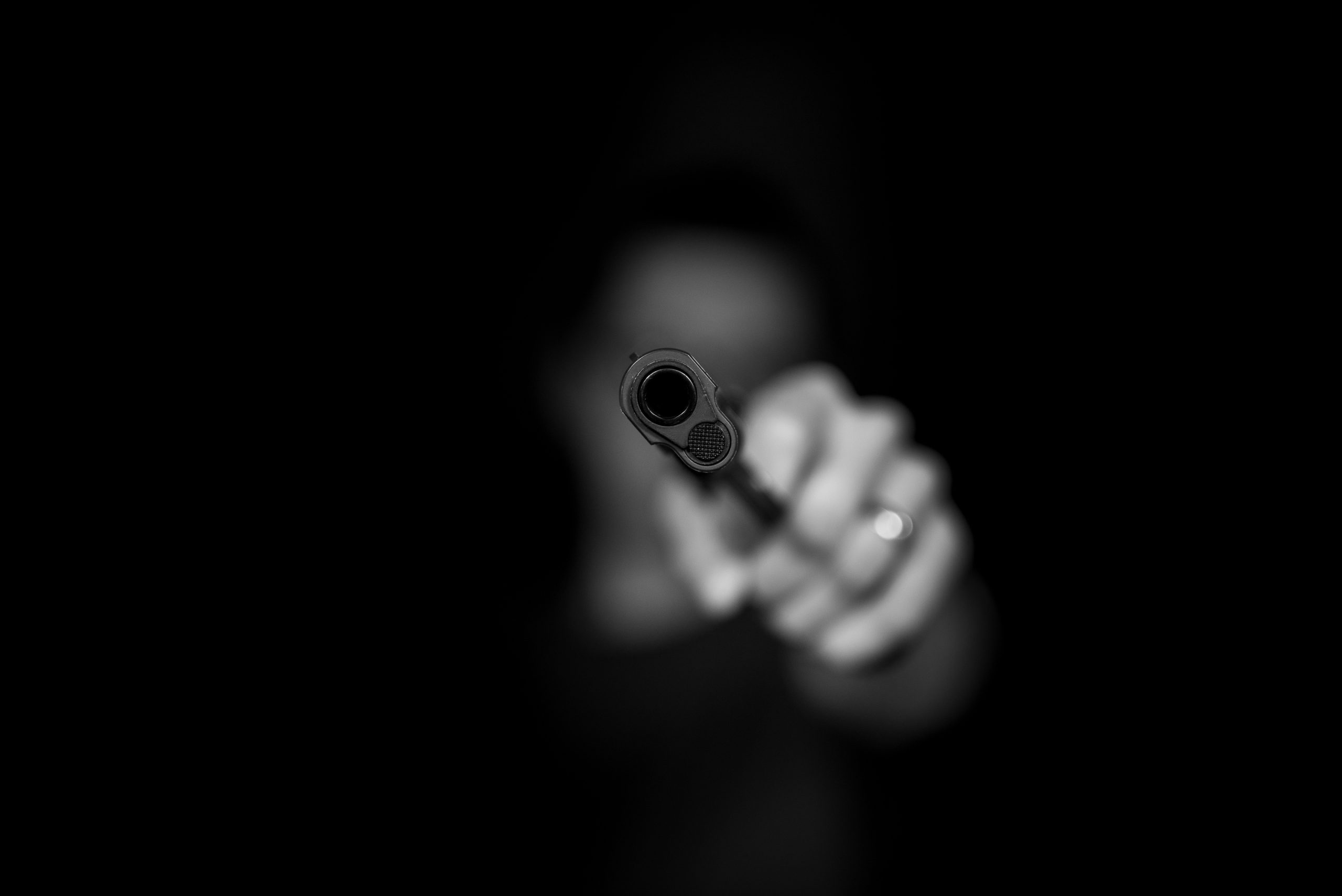Lit Mags
Harnessing the Anger of a Generation
An excerpt from ‘Passage’ by Khary Lazarre-White

Harnessing the Anger of a Generation
An excerpt from ‘Passage’
After a heated conversation about how either of them could shoot better than most of the players on the Knicks, Warrior and his father returned to the living room with warmed plates of food. Warrior’s mouth watered as he ate. His father always cooked with spices upon spices — pepper, garlic, butter, brown sugar, and hot sauce were everywhere. The chicken, cooked till browned, of course, fell off the bone, and the yellow saffron rice and bright orange yams were so good they even looked pretty. “Damn, Daddy. . . This . . . is . . . good,” Warrior said, licking his fingers.
His father smiled with pride. “You know it is.”
Then Warrior and his father sat in absolute silence. Warrior sank deeper into the burgundy couch, his father in the cherry wood rocking chair. In the absence of voices, the hum of the refrigerator, the tick of the clock, and the creak of the chair kept the beat, and his father rocked.
Warrior finished eating and leaned back into the couch. The living room was filled with instruments of every kind. A piano was in the far corner; one of his father’s basses sat at his feet, a guitar lay on top of the piano, a banjo with one broken string leaned against the wall, and drums were everywhere. Near the shelves piled high with books, was an entire silver and light honey brown drum set. There were congas of all sizes sitting around the room, waiting.
Warrior looked at a photograph of a smoky Blues joint. In the picture people were grindin’, legs wrapped around each other, as the saxophone player on the makeshift stage blew filthy notes. A few feet away on the same wall hung a dark, black-and-white photograph of Nelson Mandela looking out from behind bars in his jail cell. The shadows of the bars cast lines across his face as his eyes looked out in the distance.
“I saw Mandela on TV the other day, talking about how when he was a child he never thought he’d be where he is today. He thought he would be a shepherd out in the countryside,” Warrior said as his father finished the last of his dinner.
“A man can’t run from destiny. And his wasn’t bein’ no shepherd. That brutha is a baad cat, one for history,” his father said, wiping his mouth with the back of his hand.
Warrior stared at the photograph, slowly shaking his head. “Spent twenty years in prison, and then they came to him and told him, ‘Mandela, if you swear you won’t start no trouble, if you swear to make peace, we’ll let you out.’”
His father continued Warrior’s thought, “And Mandela just looked at ’em and said, ‘No thank you. I come out on my own terms, or I don’t come out at all. Prisoners cannot negotiate.’”
Warrior finished where his father left off. “And then he turned around and walked back into his cell for seven more years.” Warrior’s father nodded solemnly.
Warrior brought his eyes down from the picture. “People always say, ‘That brother was hard.’ But he wasn’t hard, he was strong. There’s a difference. He knew that he was the symbol of a movement. A living martyr for liberation, and his position was non-negotiable. Period. If they broke him, they’d be breaking a whole lot more than a man, they’d be breaking a people. He knew that,” Warrior said.
“He spent twenty-seven years in jail to be free,” said Warrior’s father. “Twenty-seven years,” he said through his tightened jaw.
“That’s the only hope for this country,” Warrior said. “Only a leader with his moral righteousness, a leader who knows the pain of war but also is not afraid of it, can grab the ear a the youth. If someone doesn’t come along who can reach those filled with rage, the invisible walls are gonna crumble, and America’s gonna see the face of what it’s created. The pain’s gonna be brought to their front door, and ain’t no soldiers gonna have the power to stop it. I’m not sayin’ what I think should happen, I’m sayin’ what I think shouldn’t happen, I’m sayin’ what’s gonna happen.”
Warrior’s father responded to his son’s words. “You’ve come up with a angry generation, son. Angry at broken promises, and angry at the situation you found yourselves in. It’s a righteous anger, but it’s gotta be harnessed, directed, or else it’ll take hold a you, and get inside a you like death. And I seen some that ain’t never freed themselves from its grips.” Warrior sat quietly for a few moments, his eyes studying the wooden floors, and then he looked up into his father’s face. “They asked a senator the other day how quickly the violence and bloodshed would end if the children dying were the sons and daughters of senators and congressmen, and he said, ‘It would have ended yesterday.’ So when they say that they want to deal with our anger peacefully, without any bloodshed, what they mean is that they don’t want any of their bloodshed. ’Cause while we been talking, our blood’s been flowing in the streets for years, like a river.” Warrior’s words cut through his father, and he met his son’s eyes with force.
“There must be another path to follow besides making them feel the pain we’ve felt. They can’t never know that kinda pain. We’ve been losing our children for years now. I wouldn’t wish the death of one’s children on my worst enemy. The loss of a child is a bitter pill to swallow. You hear me? A bitter pill.” Warrior’s father spit out the last words.
Warrior slowly dropped his eyes from his father’s. He looked down at his hands and said, “That’s true, Daddy. But when a child ceases to dream ’cause he spends all his time thinkin’ about whether or not he’s gonna die, a fourteen-year old being hopeless, that’s a bitter pill to swallow too.”
After a few moments of silence, Warrior’s father picked up the bass that lay at his feet, and his fingers freed the music. He stared off into space as Warrior now lay down on the couch — the only piece of furniture in the house long enough to hold his frame. Warrior closed his eyes, released the tension in his body, and listened to the soft moan of the bass.
They sat there for hours, listening to the horn of Bird, and the smooth trumpet of Miles. They talked and laughed, telling and retelling history, cloaked as family stories. They told tales they both knew, and argued about the lies. Warrior fell asleep with warmed liquor in his stomach, voices in his head, and the flow of the bass in his ears, his father’s hands still freeing the song.
About the Author
Khary Lazarre-White is a writer, social justice advocate, attorney, and activist who has dedicated his life to the educational outcome and opportunities for young people of color at key life stages. His support base is far-reaching and diverse, built over the past twenty-two years as co-founder and executive director of The Brotherhood/Sister Sol. He has received awards for his work, including the Oprah Winfrey Angel Network Use Your Life Award, the Ford Foundation Leadership for a Changing World Award, awards from Black Girls Rock! and the Andrew Goodman Foundation, and a Resident Fellowship Award to the Rockefeller Foundation’s Bellagio Center. Khary Lazarre-White is a highly influential presence among national policymakers and broadcast, print, and social media outlets. He has written for the Huffington Post, NYU Press, Nation Books, and MSNBC.com, and has edited three books, The Brotherhood Speaks, Voices of the Brotherhood/Sister Sol, and Off the Subject. He lives in Harlem, New York City. Passage is his first novel.
This excerpt comes from the novel PASSAGE, published by Seven Stories Press and appears here by permission of the publisher. Copyright © Lazarre-White 2017. All rights reserved.








